
Ubud: The Cultural Heartbeat of Bali
Ubud, located in the uplands of Bali, Indonesia, is known for its rich cultural heritage and stunning natural beauty. This charming town is surrounded by lush rice terraces, ancient temples, and dense rainforests, making it a haven for nature lovers and culture enthusiasts alike. The town is a hub for traditional arts and crafts, with numerous galleries and workshops showcasing the talents of local artisans. The Ubud Art Market is a must-visit, offering a vibrant array of handcrafted goods, from intricate wood carvings to exquisite textiles. Visitors can also explore the many art museums, such as the Agung Rai Museum of Art, which houses an impressive collection of Balinese and Indonesian artworks. For those seeking spiritual enrichment, Ubud is home to several ancient temples and sacred sites. The Tirta Empul Temple, with its holy spring water, offers a unique opportunity for purification rituals. The Goa Gajah, or Elephant Cave, is another significant site, featuring ancient rock carvings and a serene meditation grotto. Nature enthusiasts will find plenty to explore in and around Ubud. The famous Tegalalang Rice Terraces provide breathtaking views and a glimpse into the traditional Balinese irrigation system. The Sacred Monkey Forest Sanctuary is another popular attraction, where visitors can observe playful monkeys in their natural habitat. Hiking trails, such as the Campuhan Ridge Walk, offer scenic routes through the lush countryside. Ubud also boasts a vibrant culinary scene, with a variety of restaurants and cafés offering both traditional Balinese cuisine and international dishes. Health-conscious travelers will appreciate the abundance of organic eateries and wellness centers, making Ubud a great destination for relaxation and rejuvenation.
Local tips in Ubud
- Visit early in the morning to avoid crowds at popular sites like the Tegalalang Rice Terraces and the Sacred Monkey Forest Sanctuary.
- Bring comfortable walking shoes, as many attractions involve walking or hiking.
- Respect local customs and dress modestly when visiting temples and sacred sites.
- Try to visit during a local festival to experience traditional Balinese culture and ceremonies.
- Consider hiring a local guide for a more in-depth understanding of Ubud's history and culture.
Ubud: The Cultural Heartbeat of Bali
Ubud, located in the uplands of Bali, Indonesia, is known for its rich cultural heritage and stunning natural beauty. This charming town is surrounded by lush rice terraces, ancient temples, and dense rainforests, making it a haven for nature lovers and culture enthusiasts alike. The town is a hub for traditional arts and crafts, with numerous galleries and workshops showcasing the talents of local artisans. The Ubud Art Market is a must-visit, offering a vibrant array of handcrafted goods, from intricate wood carvings to exquisite textiles. Visitors can also explore the many art museums, such as the Agung Rai Museum of Art, which houses an impressive collection of Balinese and Indonesian artworks. For those seeking spiritual enrichment, Ubud is home to several ancient temples and sacred sites. The Tirta Empul Temple, with its holy spring water, offers a unique opportunity for purification rituals. The Goa Gajah, or Elephant Cave, is another significant site, featuring ancient rock carvings and a serene meditation grotto. Nature enthusiasts will find plenty to explore in and around Ubud. The famous Tegalalang Rice Terraces provide breathtaking views and a glimpse into the traditional Balinese irrigation system. The Sacred Monkey Forest Sanctuary is another popular attraction, where visitors can observe playful monkeys in their natural habitat. Hiking trails, such as the Campuhan Ridge Walk, offer scenic routes through the lush countryside. Ubud also boasts a vibrant culinary scene, with a variety of restaurants and cafés offering both traditional Balinese cuisine and international dishes. Health-conscious travelers will appreciate the abundance of organic eateries and wellness centers, making Ubud a great destination for relaxation and rejuvenation.
When is the best time to go to Ubud?
Iconic landmarks you can’t miss
Campuhan Ridge Walk
Discover the breathtaking landscapes of Campuhan Ridge Walk in Ubud, a must-see hiking area that captures the essence of Bali's natural beauty.
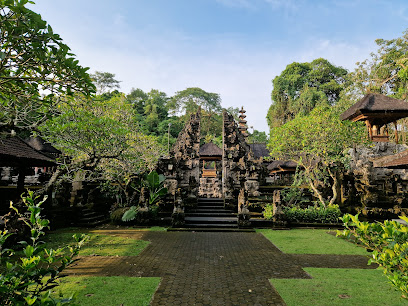
Ubud Palace
Discover the enchanting Ubud Palace, a historical landmark in Bali that offers a unique glimpse into the island's royal heritage and vibrant cultural traditions.
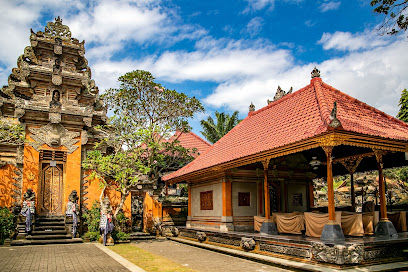
Museum Puri Lukisan
Discover the essence of Balinese art and culture at Museum Puri Lukisan, a serene escape in the heart of Ubud, Bali.

Agung Rai Museum of Art
Explore the rich heritage of Indonesian art at the Agung Rai Museum of Art in Ubud, a serene retreat for culture enthusiasts amidst lush gardens.
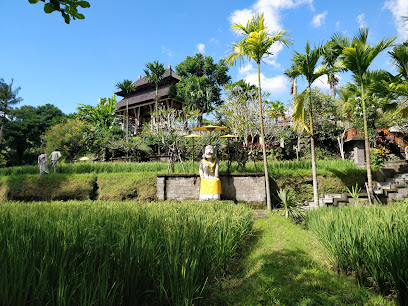
Kajeng Rice Field
Experience the tranquil beauty of Kajeng Rice Field in Ubud, Bali - a serene escape into lush greenery and rich culture.
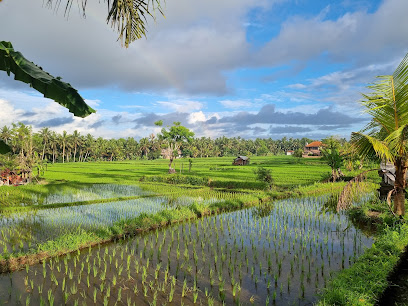
Ubud Water Palace
Discover the tranquil beauty and cultural richness of Ubud Water Palace, a stunning Hindu temple surrounded by lush gardens and serene waters in Bali.
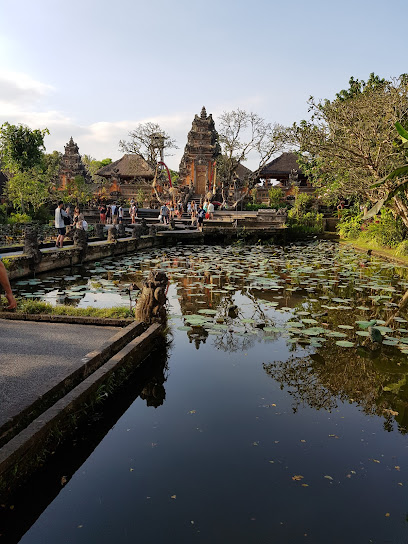
Pura Dalem Ubud
Explore the serenity of Pura Dalem Ubud, a spiritual haven in Bali that showcases the island's rich cultural and religious heritage.
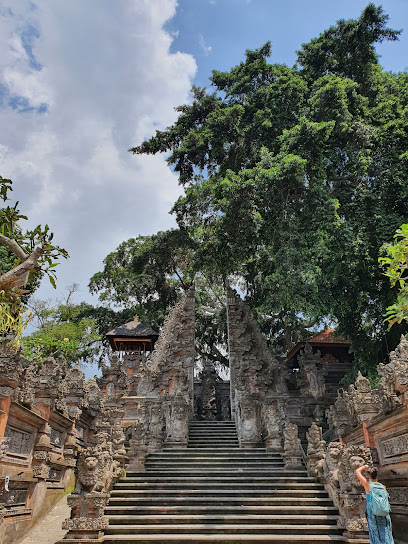
Petulu Heron Bird Colony Watch Point
Discover the enchanting Petulu Heron Bird Colony Watch Point, where nature comes alive with thousands of herons returning home at sunset in Bali.
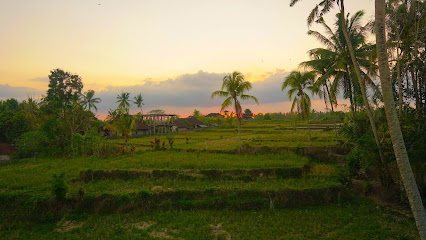
Puri Agung Peliatan
Explore the stunning Puri Agung Peliatan in Ubud, Bali, where traditional architecture meets rich royal heritage in a serene cultural oasis.
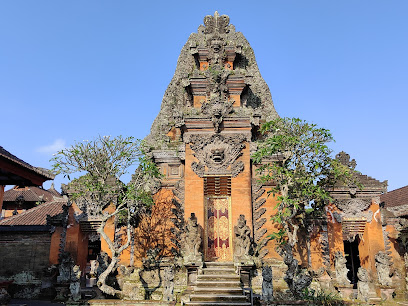
Pura Dalem Agung Padangtegal
Discover the spiritual heart of Ubud at Pura Dalem Agung Padangtegal, a tranquil Hindu temple surrounded by lush greenery and rich cultural heritage.
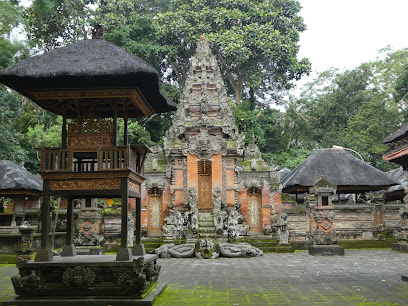
Puri Langon Ubud
Experience the best of Bali's natural beauty and cultural heritage at Puri Langon Ubud, a tranquil paradise in the heart of Ubud.
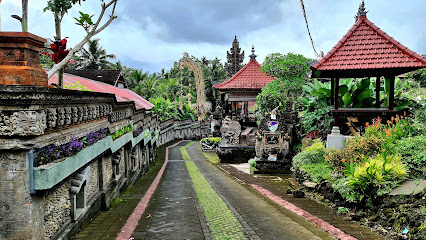
Rice Fields Walk
Experience the tranquility and beauty of Rice Fields Walk in Ubud, Bali, where stunning landscapes meet local culture in a serene hiking adventure.
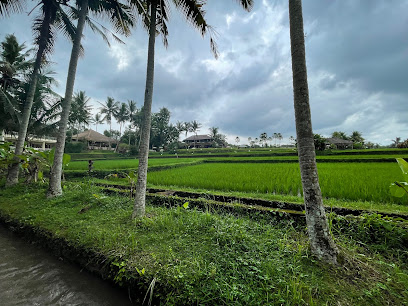
Open Stage Pura Dalem Ubud
Experience the captivating world of Balinese culture at Open Stage Pura Dalem Ubud, where traditional performances come to life in a stunning setting.
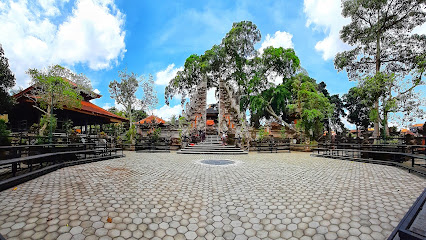
Pont de Campuhan
Discover the breathtaking beauty of Pont de Campuhan, a serene footbridge in Ubud, Bali, perfect for nature lovers and photography enthusiasts alike.
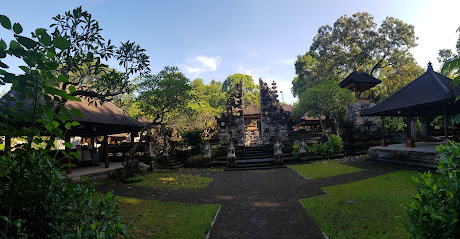
Puri Saren Agung Ubud ( Puri Saren Ubud )
Discover the rich cultural heritage and breathtaking architecture of Puri Saren Agung in the heart of Ubud, Bali's royal palace and cultural hub.
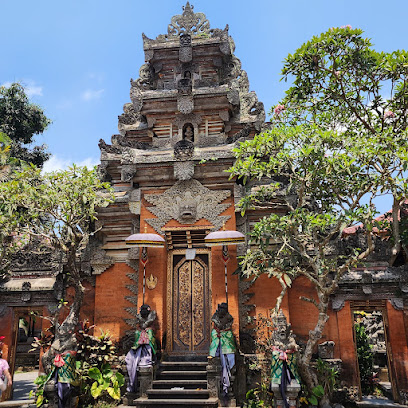
Unmissable attractions to see
Denpasar Cineplex
Discover the magic of cinema at Denpasar Cineplex, the ultimate movie destination in Bali's bustling capital.
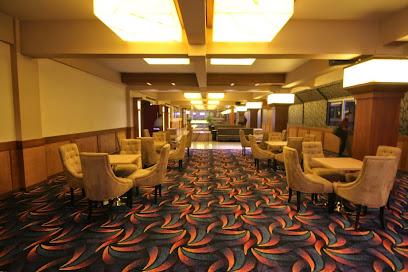
The Blooms Garden
Experience the enchanting beauty of The Blooms Garden in Bali, where lush landscapes meet exquisite dining and luxurious accommodations.
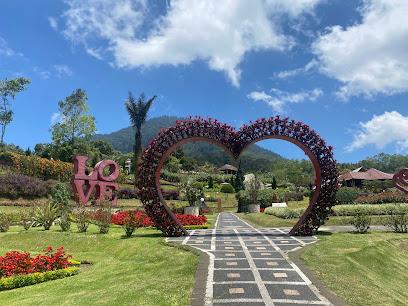
Sekumpul Waterfall
Explore the breathtaking beauty of Sekumpul Waterfall, Bali's hidden gem, surrounded by lush landscapes and vibrant culture.
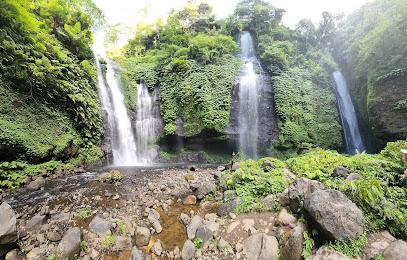
Agung Rai Museum of Art
Explore the beauty of Balinese art and culture at Agung Rai Museum of Art in Ubud - a treasure trove of traditional and contemporary masterpieces.
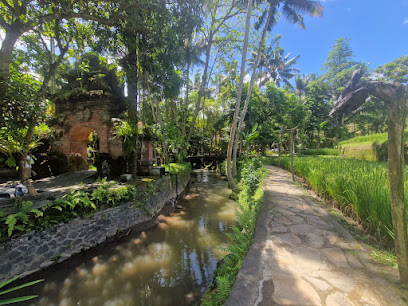
Monkey Forest
Explore the lush sanctuary of the Monkey Forest in Ubud, Bali, where playful monkeys and ancient temples intertwine in a captivating experience.
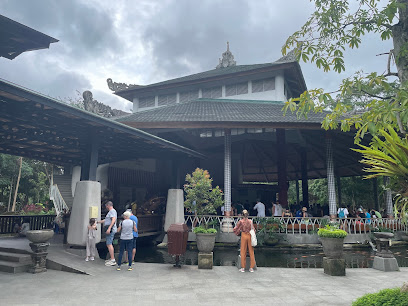
Junglegold Chocolate Sanur (Pod Chocolate)
Discover the artisanal delights of Junglegold Chocolate Sanur, a chocolate lover's paradise in Bali, offering handcrafted treats and delightful flavors.
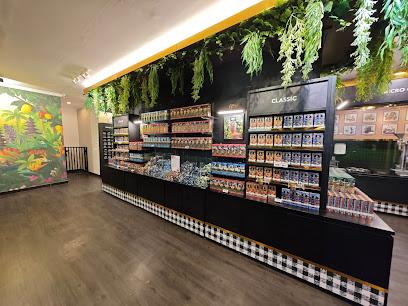
Dune Atlantis Bali
Experience the underwater wonders of Bali at Dune Atlantis, a premier diving center in Sanur, offering thrilling dives and unforgettable marine encounters.

Duta Orchid Garden
Explore the vibrant beauty of Duta Orchid Garden in Bali, a serene oasis filled with exquisite orchids and lush landscapes, perfect for relaxation and photography.
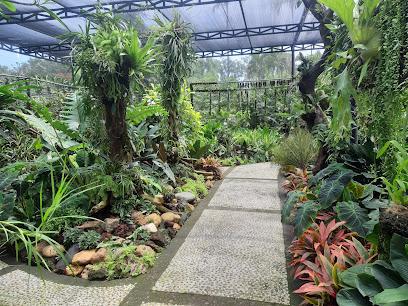
Samana Aksata Spa
Discover tranquility and rejuvenation at Samana Aksata Spa, a serene oasis in the heart of Ubud, Bali, offering traditional Balinese treatments.
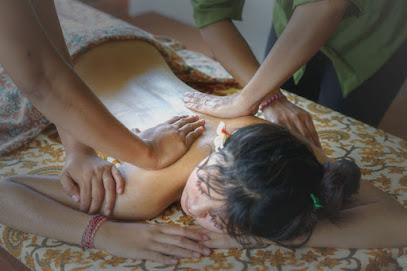
Petulu Heron Bird Colony Watch Point
Witness the breathtaking spectacle of thousands of herons at Petulu Heron Bird Colony, a serene escape in Ubud, Bali, perfect for nature lovers.
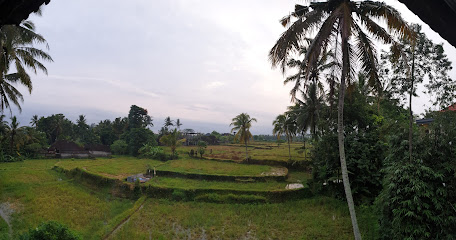
Pura Dalem Agung Padangtegal
Explore the serene beauty and cultural significance of Pura Dalem Agung Padangtegal, a must-visit Hindu temple in Ubud, Bali, surrounded by lush landscapes.
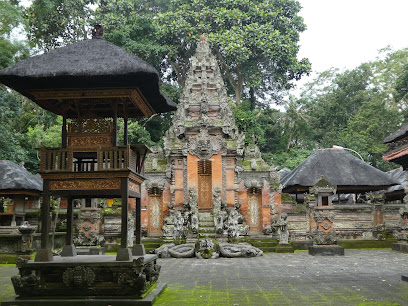
Cemara Beach
Discover the tranquil beauty of Cemara Beach in Sanur, Bali, where stunning sunrises, soft sands, and vibrant local culture await every traveler.
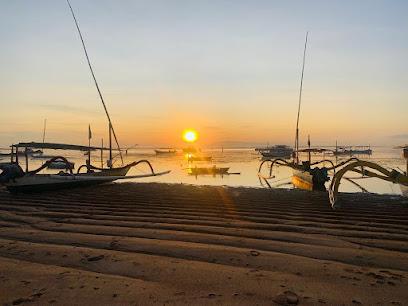
Misel's Spa and Beauty
Discover tranquility and rejuvenation at Misel's Spa and Beauty, the ultimate destination for relaxation in Benoa, Bali.
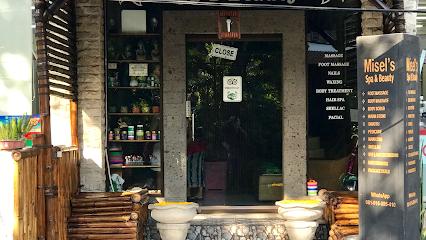
Puri Langon Ubud
Discover the enchanting beauty of Puri Langon Ubud, a tranquil tourist attraction filled with stunning landscapes and rich Balinese culture.
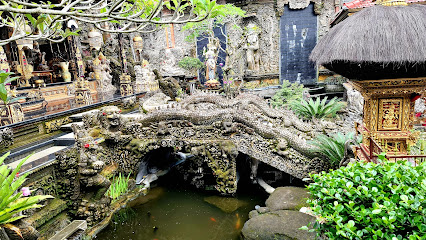
Rice Fields Walk
Explore the serene Rice Fields Walk in Ubud, Bali – a picturesque hiking area featuring lush terraces and captivating natural beauty.
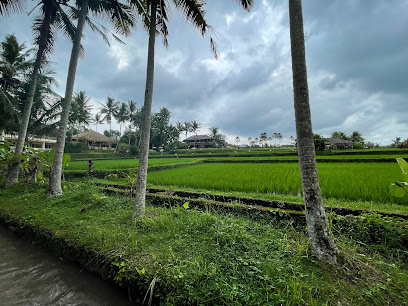
Essential places to dine
Bebek Tepi Sawah Restaurant Ubud
Experience authentic Indonesian cuisine amidst breathtaking rice paddy views at Bebek Tepi Sawah Restaurant in Ubud.
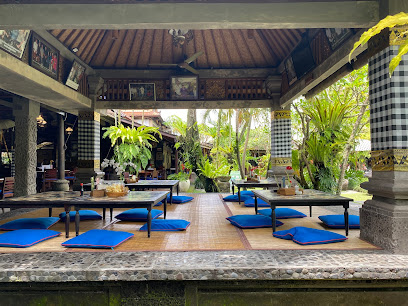
Kebun Bistro
Experience the perfect blend of French, Italian, and Mediterranean cuisines at Kebun Bistro in Ubud—a must-visit culinary destination in Bali.
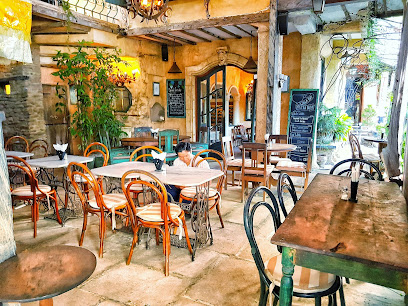
Donna
Discover the vibrant flavors of Indonesia at Donna - Ubud's premier restaurant and cocktail bar offering a unique blend of culinary excellence.
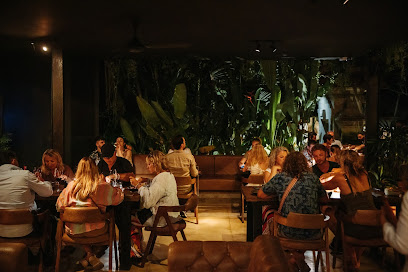
Sweet Orange Warung
Experience authentic Indonesian and vegetarian cuisine at Sweet Orange Warung in Ubud - a must-visit culinary haven in Bali.
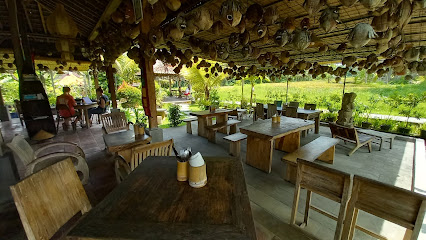
Herbivore by Locavore
Experience fine dining at Herbivore by Locavore in Ubud, where exquisite Indonesian flavors meet sustainable practices for an unforgettable culinary adventure.
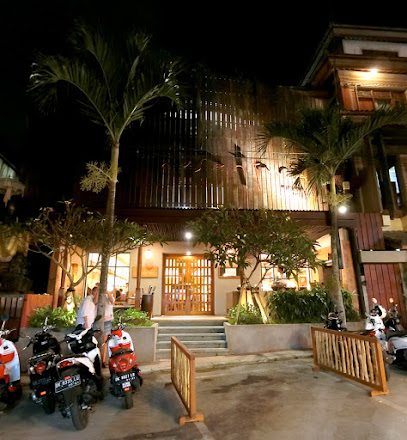
Cafe Lotus
Experience the best of Balinese and Western cuisine at Cafe Lotus in Ubud's serene setting surrounded by beautiful lotus ponds.
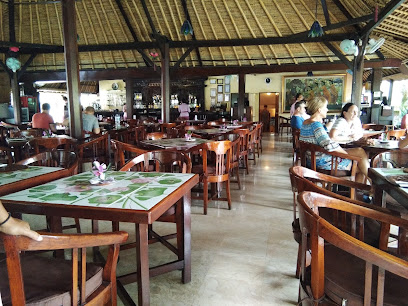
Hujan Locale: Modern Indonesian Restaurant
Experience the essence of Indonesian flavors blended with modern culinary artistry at Hujan Locale in Ubud.
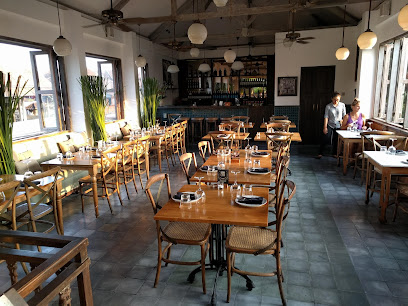
Casa Luna
Experience authentic Balinese cuisine at Casa Luna in Ubud – a culinary treasure offering delightful flavors in a warm ambiance.
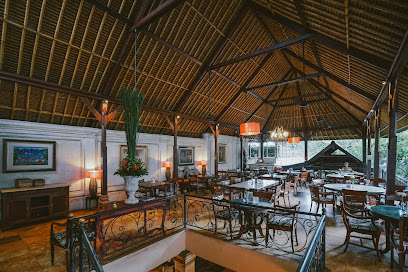
Herb Library Bali
Discover Herb Library Bali: A health-focused dining experience in Ubud offering delicious vegan and vegetarian cuisine amidst lush tropical surroundings.
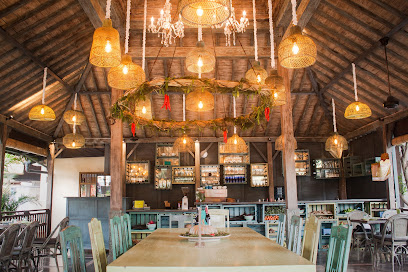
Mozaic
Experience exquisite French cuisine amidst Bali's breathtaking landscapes at Mozaic, where culinary artistry meets local flavors.
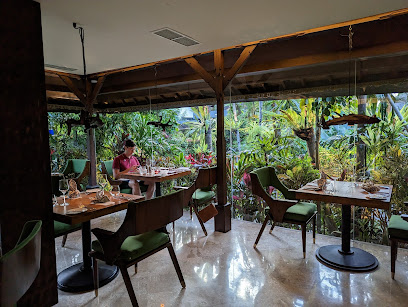
Warung Pulau Kelapa Indonesian Cuisine
Discover authentic Indonesian cuisine at Warung Pulau Kelapa in Ubud, where every dish tells a story of Bali's rich culinary heritage.
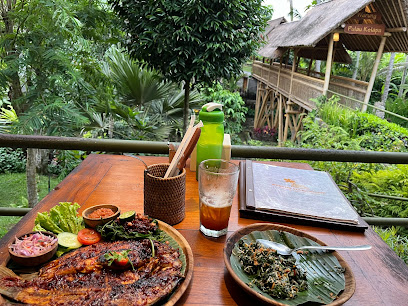
Merlin's
Discover the enchanting culinary experience at Merlin's in Ubud – where magic meets flavor in Bali.
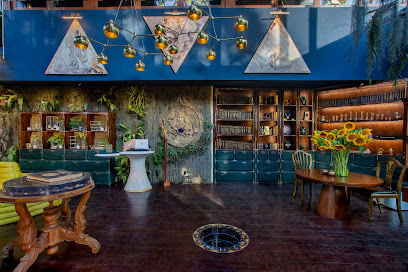
IBU SUSU Bar & Kitchen
Experience the best of Asian fusion at IBU SUSU Bar & Kitchen in Ubud – where culinary tradition meets modern creativity.
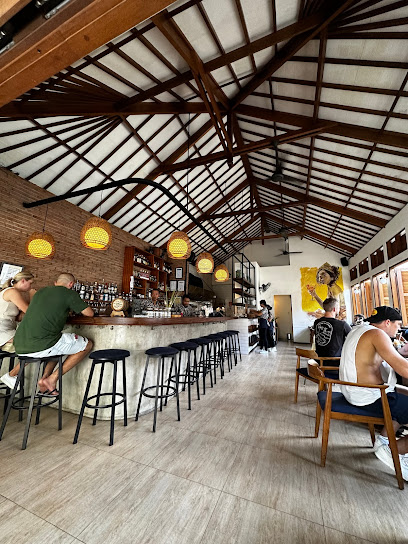
Labak Sari Restaurant
Experience the rich flavors of Bali at Labak Sari Restaurant, where authentic cuisine meets breathtaking views in Ubud.
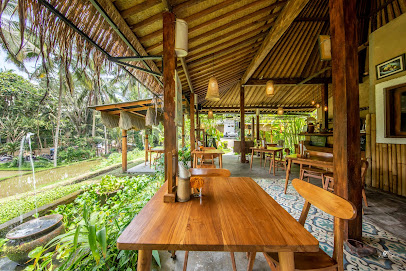
Pica South American Kitchen
Experience authentic Peruvian cuisine in Ubud at Pica South American Kitchen - where vibrant flavors meet unforgettable dining.
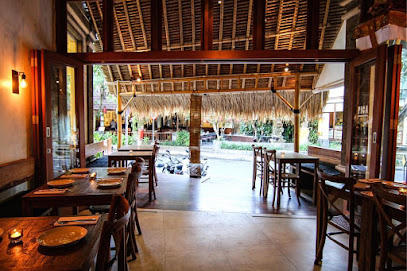
Markets, malls and hidden boutiques
Threads of Life Store
Explore Threads of Life Store in Ubud for authentic Indonesian handicrafts and textiles that celebrate culture and craftsmanship.
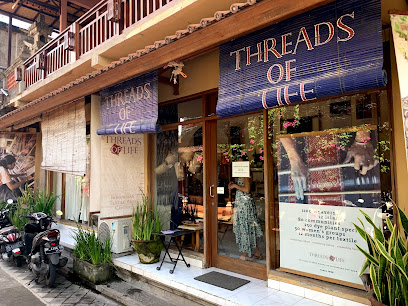
Ikat Batik
Discover authentic Balinese batik clothing and home goods at Ikat Batik in Ubud, where traditional craftsmanship meets vibrant design.
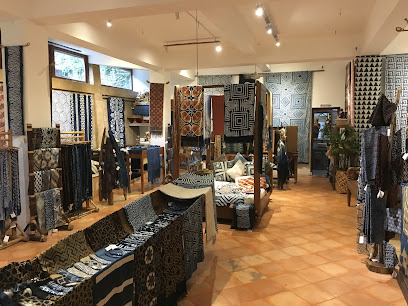
Erika Pena Boutique Ubud
Explore Erika Pena Boutique Ubud for exquisite fashion and stunning wedding attire, blending traditional Balinese artistry with modern elegance.
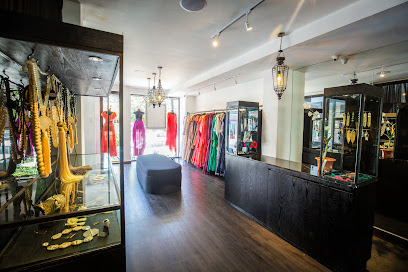
CHA-CHA SHOP
Explore CHA-CHA SHOP in Ubud for unique handcrafted gifts and authentic Balinese souvenirs that capture the island's rich artistry.
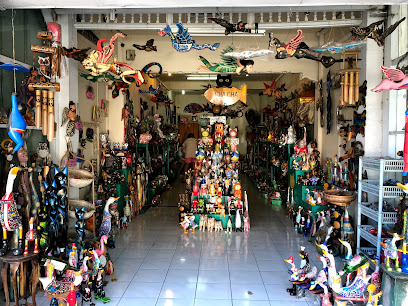
Lily Jean Ubud
Discover the latest women's fashion trends at Lily Jean Ubud, where style meets the artistic spirit of Bali.
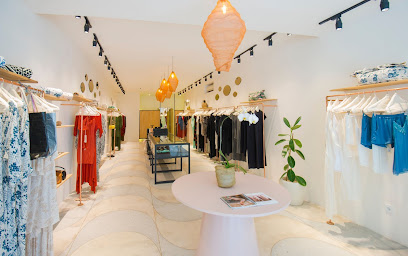
Toko Elami
Discover unique handmade Balinese gifts at Toko Elami, a charming gift shop in Ubud showcasing local artistry and culture.
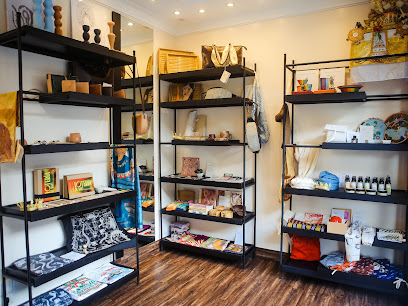
ZenAura Boutique Bali
Explore the vibrant and unique offerings of ZenAura Boutique Bali, where Balinese culture meets contemporary style in Ubud.
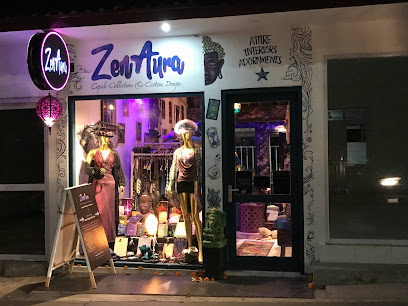
Indigo Luna Store Ubud
Discover unique, stylish clothing and accessories at Indigo Luna Store in Ubud, Bali's premier destination for ethical fashion and vibrant shopping.
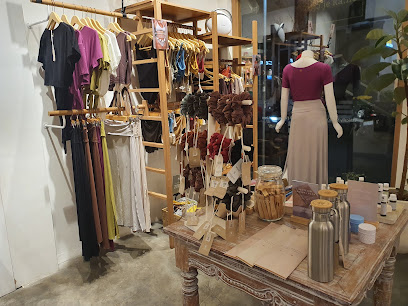
Grounded Ubud
Explore Grounded Ubud, a unique gift shop featuring antiques, art, and local treasures in the heart of Bali's cultural capital.
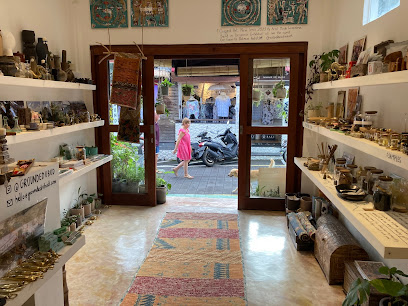
BALIISM Store Ubud
Explore unique gifts and artisanal treasures at BALIISM Store Ubud, a premier destination for authentic Balinese souvenirs.
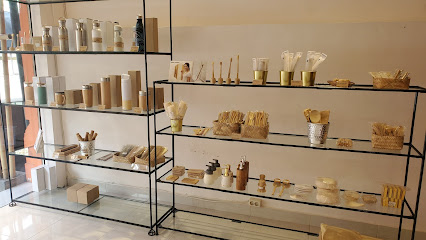
The Crystal Boutique
Discover unique jewelry and artisanal gifts at The Crystal Boutique in Ubud, Bali – a must-visit for every traveler seeking authentic souvenirs.
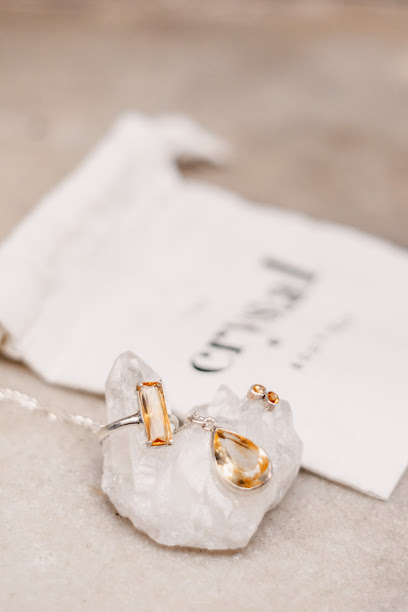
Warji shop
Explore Warji Shop in Ubud, Bali, where every antique tells a story and connects you to the rich cultural heritage of the island.
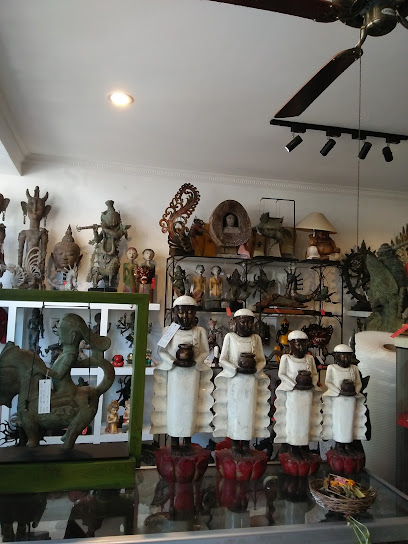
Portobello Ubud Market
Explore the vibrant Portobello Ubud Market in Bali, a must-visit destination for unique clothing and artisanal treasures amidst a lively atmosphere.
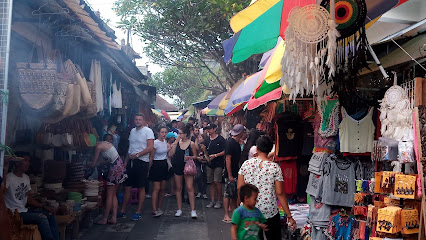
newearth by Ashamaya (Ubud )
Explore the vibrant fusion of traditional Balinese aesthetics and modern fashion at NewEarth by Ashamaya in Ubud, Bali.
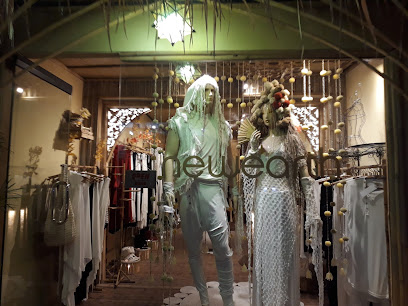
Ubud Kreatif
Explore Ubud Kreatif, Bali's premier destination for authentic gifts and local crafts, showcasing the island's vibrant culture and artistry.
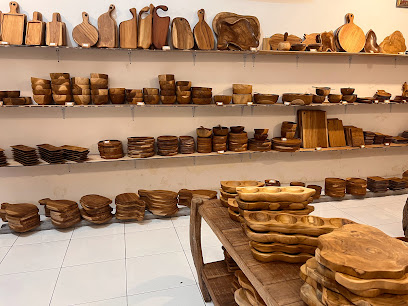
Essential bars & hidden hideouts
CP Lounge Ubud
Experience vibrant nightlife and relaxing ambiance at CP Lounge Ubud, a top spot for food, drinks, and entertainment in Bali.
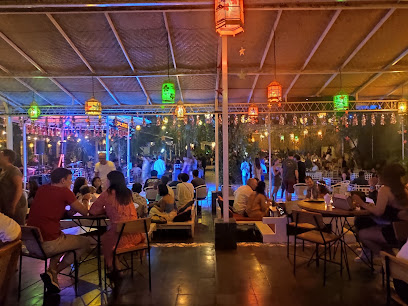
Laughing Buddha Bar
Experience the vibrant flavors of Bali at Laughing Buddha Bar, where delicious grilled dishes meet a lively ambiance in the heart of Ubud.
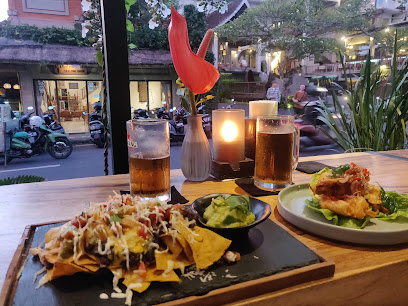
L.O.L Bar & Restaurant
Discover unforgettable evenings filled with live music, delicious food, and vibrant energy at L.O.L Bar & Restaurant in Ubud, Bali.
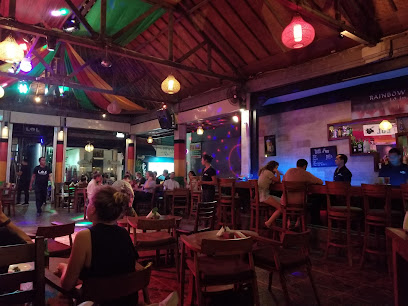
No Más Bar
Discover the vibrant nightlife at No Más Bar in Ubud, Bali, where exquisite cocktails and live music create unforgettable evenings.
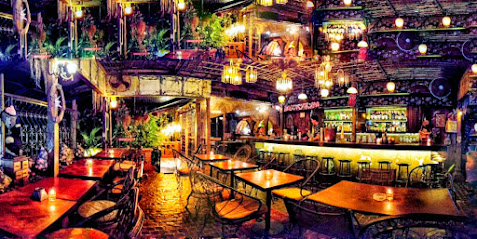
The Blue Door Bar, Club & Grill
Discover the vibrant nightlife and delicious cuisine at The Blue Door Bar, Club & Grill in Ubud, Bali – where every night is a celebration.
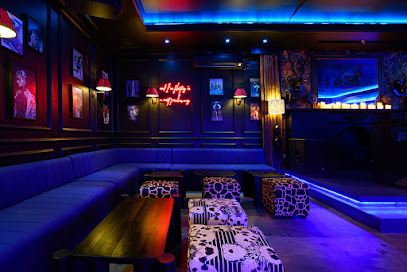
The Melting Pot Saloon
Experience the vibrant blend of food, drinks, and fun at The Melting Pot Saloon in Ubud, Bali – an unforgettable hotspot for tourists and locals alike.
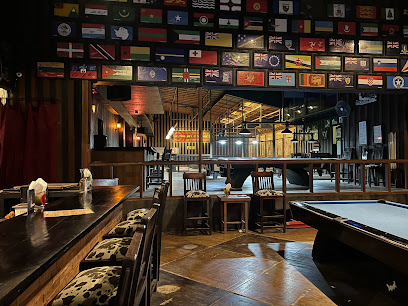
Why Not Restaurant and Bar
Discover Ubud's vibrant dining scene at Why Not Restaurant and Bar, where local and international flavors meet in a lively atmosphere.
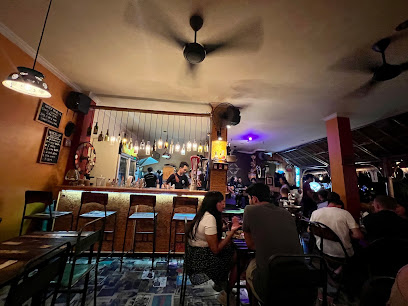
Copper Kitchen & Bar
Experience the vibrant flavors of Asia and beyond at Copper Kitchen & Bar, a culinary hotspot in the heart of Ubud, Bali.
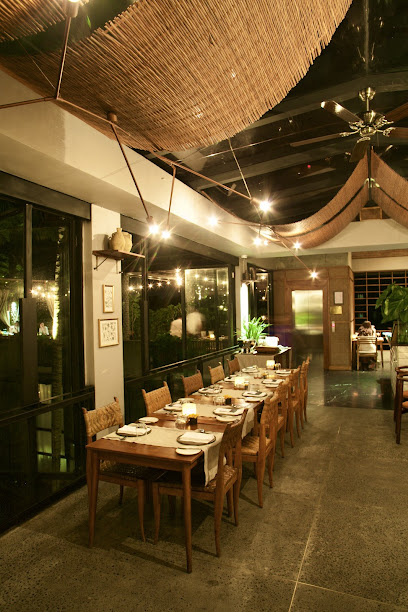
Lokal Bar Ubud
Discover the tropical charm of Lokal Bar Ubud, where refreshing drinks and serene surroundings await in the heart of Bali's vibrant culture.
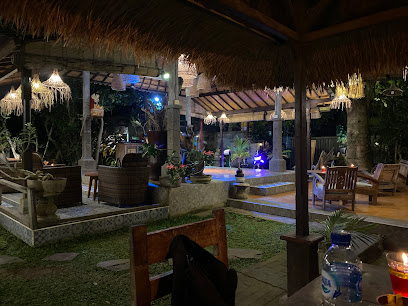
Divya Bar Ubud
Discover the vibrant atmosphere and exquisite cocktails at Divya Bar Ubud, a must-visit for any traveler exploring Bali's cultural heart.
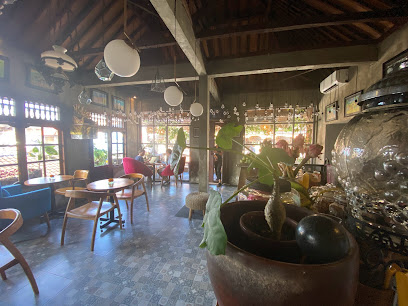
Belle Wine Bar & Grazing Boards
Discover the perfect pairing of exquisite wines and gourmet tapas at Belle Wine Bar & Grazing Boards in Ubud, Bali.
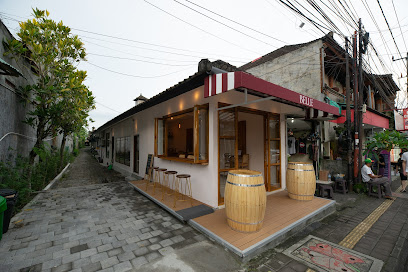
BACARI
Experience the best of Balinese culinary artistry at BACARI, Ubud's premier tapas and wine bar, where flavors meet local charm.
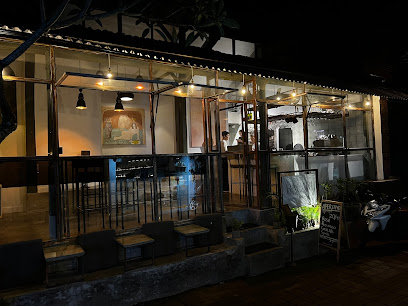
Puzzle Bar & Grill
Discover the lively atmosphere of Puzzle Bar & Grill in Ubud, where delicious food, live music, and a vibrant bar scene come together for an unforgettable experience.
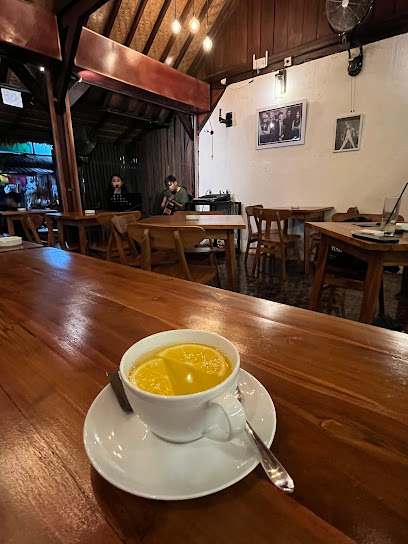
Lovin Bar & Restaurant
Experience the vibrant atmosphere and delicious drinks at Lovin Bar & Restaurant, a top nightlife destination in Ubud, Bali.
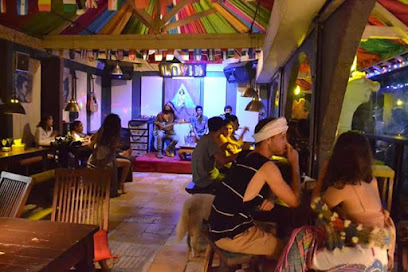
Night Rooster
Discover the vibrant nightlife of Ubud at Night Rooster, where eclectic decor meets expertly crafted cocktails in a lively atmosphere.
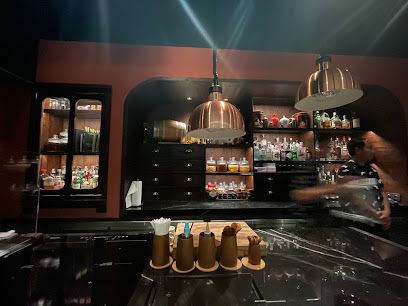
Local Phrases about Ubud
-
- HelloOm Swastiastu
[ohm swas-tee-ah-stu] - GoodbyeSampai jumpa
[sam-pie joom-pah] - YesIya
[ee-ya] - NoTidak
[tee-dak] - Please/You're welcomeMatur suksma
[mah-tour sooks-mah] - Thank youTerima kasih
[teh-ree-mah kah-see] - Excuse me/SorryMaaf
[mah-ahf] - How are you?Apa kabar?
[ah-pah kah-bar] - Fine. And you?Baik. Bagaimana denganmu?
[bah-eek. bah-guy-mah-nah deh-ngahn-moo] - Do you speak English?Apakah Anda bisa berbicara bahasa Inggris?
[ah-pah-kah ahn-dah bee-sah ber-bee-char-ah bah-hah-sah ing-gris] - I don't understandSaya tidak mengerti
[sah-yah tee-dak mehng-ehr-tee]
- HelloOm Swastiastu
-
- I'd like to see the menu, pleaseSaya ingin melihat menu, tolong
[sah-yah in-geen meh-lee-hat meh-noo toh-long] - I don't eat meatSaya tidak makan daging
[sah-yah tee-dak mah-kahn dah-ee-ng] - Cheers!Salam sehat!
[sah-lahm seh-haht] - I would like to pay, pleaseSaya ingin membayar, tolong
[sah-yah in-geen mem-bah-yar toh-long]
- I'd like to see the menu, pleaseSaya ingin melihat menu, tolong
-
- Help!Tolong!
[toh-long] - Go away!Pergi!
[per-gee] - Call the Police!Panggil polisi!
[pahng-geel poh-lee-see] - Call a doctor!Panggil dokter!
[pahng-geel dohk-tehr] - I'm lostSaya tersesat
[sah-yah tehr-suh-saht] - I'm illSaya sakit
[sah-yah sah-keet]
- Help!Tolong!
-
- I'd like to buy...Saya ingin membeli...
[sah-yah in-geen mem-buh-lee] - I'm just lookingSaya hanya melihat-lihat
[sah-yah hun-yah meh-lee-hat-lee-hat] - How much is it?Berapa harganya?
[buh-rah-pah har-gahn-ya] - That's too expensiveItu terlalu mahal
[ee-too teh-rah-lah mah-hal] - Can you lower the price?Bisa dikurangi harganya?
[bee-sah dee-koo-rahn-gee har-gahn-ya]
- I'd like to buy...Saya ingin membeli...
-
- What time is it?Pukul berapa sekarang?
[poo-kool buh-rah-pah seh-kah-rahn] - It's one o'clockSekarang pukul satu
[seh-kah-rahn poo-kool sah-too] - Half past (10)Setengah (sepuluh)
[suh-tuh-ngah (suh-poo-looh)] - MorningPagi
[pah-gee] - AfternoonSore
[soh-reh] - EveningMalam
[mah-lahm] - YesterdayKemarin
[keh-mah-reen] - TodayHari ini
[hah-ree ee-nee] - TomorrowBesok
[beh-sohk] - 1Satu
[sah-too] - 2Dua
[doo-ah] - 3Tiga
[tee-gah] - 4Empat
[em-paht] - 5Lima
[lee-mah] - 6Enam
[eh-nahm] - 7Tujuh
[too-joo] - 8Delapan
[deh-lah-pahn] - 9Sembilan
[sehm-bee-lahn] - 10Sepuluh
[suh-poo-looh]
- What time is it?Pukul berapa sekarang?
-
- Where's a/the...?Dimana ada/ada...
[dee-mah-nah ah-dah/ah-dah] - What's the address?Apa alamatnya?
[ah-pah ah-lah-maht-nyah] - Can you show me (on the map)?Bisa tunjukkan ke saya (di peta)?
[bee-sah toon-jook-kahn keh sah-yah (dee peh-tah)] - When's the next (bus)?Kapan yang berikutnya (bis)?
[kah-pahn yang buh-ree-koot-nyah (bees)] - A ticket (to ....)Sebuah tiket (ke ....)
[seh-oo-ah teek-et (keh ....)]
- Where's a/the...?Dimana ada/ada...
History of Ubud
-
The name 'Ubud' is derived from the Balinese word 'Ubad,' meaning medicine. This is a nod to the area's beginnings as a source of medicinal plants and herbs. Initially, Ubud was a quiet village surrounded by lush forests and rice paddies, which provided fertile ground for traditional herbalists.
-
In the 8th century, a Javanese Hindu priest named Rsi Markendya came to Bali and founded the Gunung Lebah Temple in Campuhan, Ubud. This marked the beginning of Hinduism in the region, which continues to shape its spiritual and cultural landscape to this day.
-
By the late 19th century, Ubud had become a significant location for the ruling family of Gianyar, who built the Ubud Palace (Puri Saren Agung). The palace remains a cultural and political hub, hosting traditional dance performances and ceremonies.
-
In the early 20th century, Western artists and intellectuals began to arrive in Ubud, drawn by its natural beauty and rich cultural heritage. Notable figures include the German painter Walter Spies and Dutch artist Rudolf Bonnet, who played pivotal roles in the development of Balinese art and culture.
-
After Indonesia gained independence in 1945, Ubud continued to flourish as a center for arts and culture. The establishment of the Neka Art Museum and the ARMA Museum in the late 20th century helped to preserve and showcase Balinese art and history.
-
Today, Ubud is renowned for its vibrant arts scene, yoga retreats, and eco-tourism. The annual Ubud Writers & Readers Festival and the BaliSpirit Festival attract visitors from around the globe, further cementing its status as a cultural and spiritual destination.
Ubud Essentials
-
Ubud is located in the central part of Bali, Indonesia. The nearest international airport is Ngurah Rai International Airport (DPS) in Denpasar, approximately 40 kilometers away. From the airport, you can take a taxi or a private car service to Ubud, which typically takes about 1.5 to 2 hours depending on traffic. There are also shuttle services and public buses available for a more budget-friendly option.
-
Ubud is a relatively small town, and many attractions are within walking distance. For longer distances, you can use local taxis, rental scooters, or bicycles. Ride-hailing apps like Go-Jek and Grab are also popular and convenient for getting around. If you prefer a more immersive experience, consider hiring a private driver for the day to explore the surrounding areas.
-
The official currency in Indonesia is the Indonesian Rupiah (IDR). Credit cards are accepted in many hotels, restaurants, and shops, but it's advisable to carry cash for smaller establishments and local markets. ATMs are widely available in Ubud, and money changers offer competitive exchange rates. Always ensure you have enough cash, especially if you plan to visit remote areas.
-
Ubud is generally a safe destination for tourists. However, petty crimes like pickpocketing and bag snatching can occur, especially in crowded areas. It is advisable to keep your belongings secure and avoid walking alone at night in unfamiliar areas. Be cautious of unofficial money changers and always check your change carefully. Major tourist spots like the Monkey Forest may have aggressive monkeys, so keep your belongings out of reach.
-
In case of an emergency, dial 112 for immediate assistance. Ubud has several clinics and the main hospital in Denpasar is about an hour away. It is recommended to have travel insurance that covers medical emergencies. For minor health issues, there are pharmacies in Ubud where you can purchase over-the-counter medications.
-
Fashion: Do dress modestly, especially when visiting temples and religious sites. Avoid wearing revealing clothing. Religion: Do respect local customs and traditions. Always wear a sarong and sash when entering temples. Public Transport: Do be respectful and give up your seat to elderly passengers. Don’t eat or drink on public transport. Greetings: Do greet people with a smile and a slight bow. A handshake is also acceptable but not always necessary. Eating & Drinking: Do try local delicacies and accept food offerings graciously. Don’t refuse hospitality, as it is considered impolite.
-
To experience Ubud like a local, visit the traditional markets such as Ubud Market, where you can buy fresh produce and handmade crafts. Engage with locals, as they are often friendly and willing to share stories about their culture. Attend traditional dance performances and ceremonies to gain a deeper understanding of Balinese culture. For a unique experience, consider taking a cooking class or a guided tour of the rice terraces.
Trending Landmarks in Ubud
-
Campuhan Ridge Walk
-
Ubud Palace
-
Museum Puri Lukisan
-
Agung Rai Museum of Art
-
Kajeng Rice Field
-
Ubud Water Palace
-
Pura Dalem Ubud
-
Petulu Heron Bird Colony Watch Point
-
Puri Agung Peliatan
-
Pura Dalem Agung Padangtegal
-
Puri Langon Ubud
-
Rice Fields Walk
-
Open Stage Pura Dalem Ubud
-
Pont de Campuhan
-
Puri Saren Agung Ubud ( Puri Saren Ubud )
Nearby Cities to Ubud
-
Things To Do in Surabaya
-
Things To Do in Yogyakarta
-
Things To Do in Semarang
-
Things To Do in Makassar
-
Things To Do in Balikpapan
-
Things To Do in Bandung
-
Things To Do in Jakarta
-
Things To Do in Settlement
-
Things To Do in Poon Saan
-
Things To Do in Flying Fish Cove
-
Things To Do in Drumsite
-
Things To Do in Greta Beach
-
Things To Do in Suai
-
Things To Do in Bobonaro
-
Things To Do in Ermera












